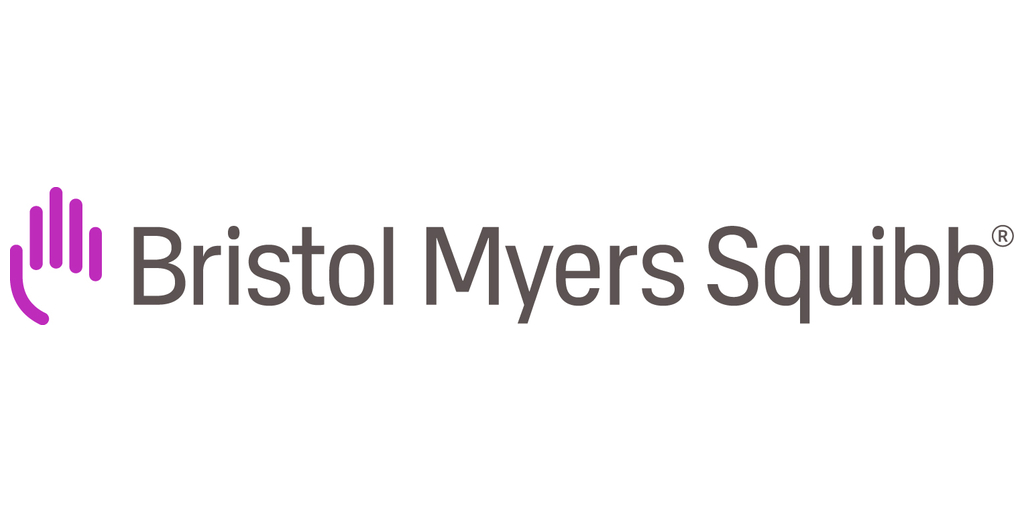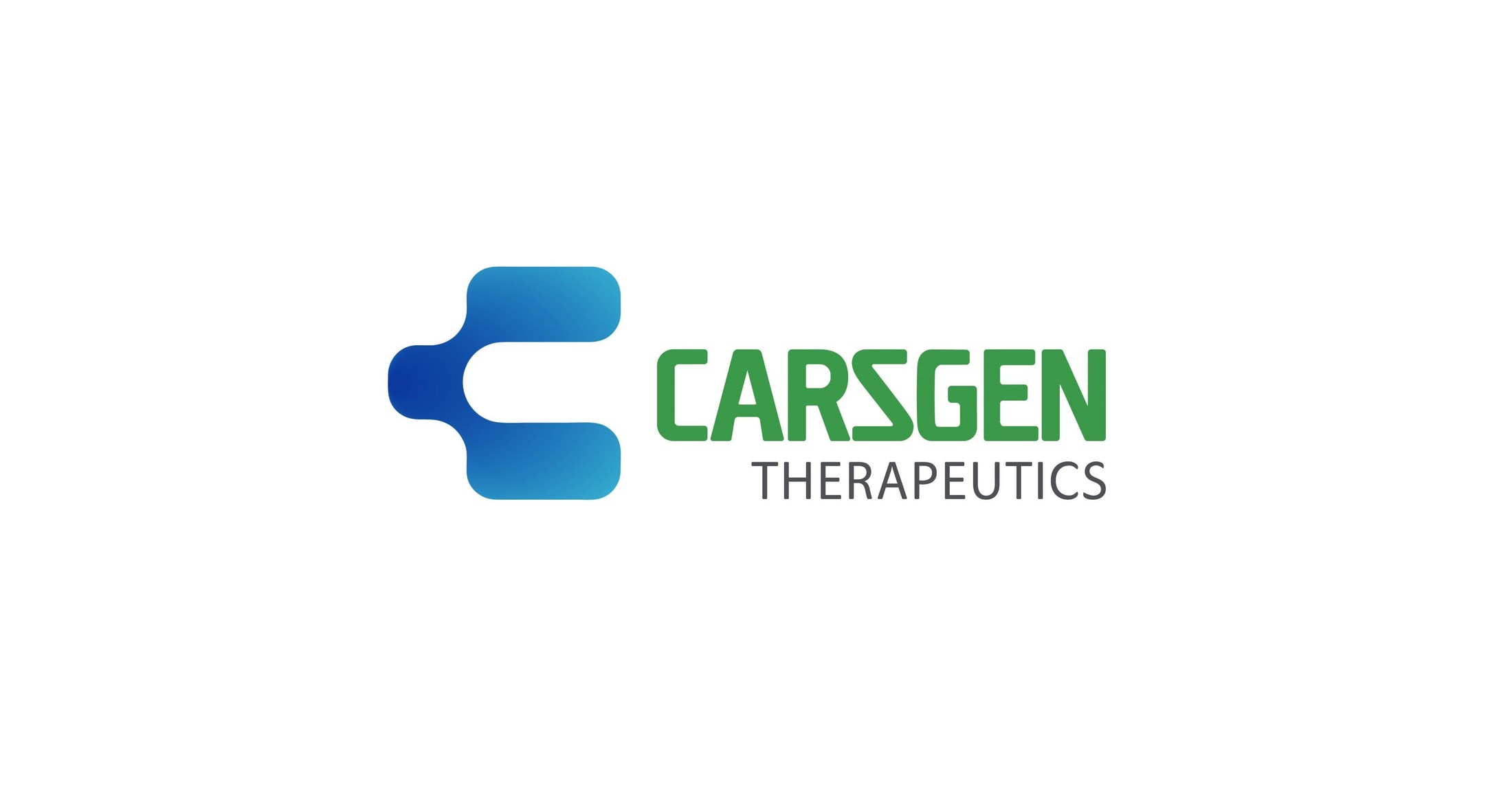Bristol Myers Squibb to Present Data at ASCO® 2025 Highlighting Differentiated Research Platform of Oncology Treatments and Innovative Research Pipeline
PRINCETON, N.J.–(BUSINESS WIRE)–$BMY #ASCO—Bristol Myers Squibb (NYSE: BMY) today announced the presentation of data across its oncology portfolio and pipeline at the 2025 American Society of Clinical Oncology (ASCO®) Annual Meeting to be held May 30-June 3 in Chicago, Illinois. Data from more than 80 company-sponsored studies, investigator-sponsored studies, and collaborations showcase results spanning more than 20 cancer types.
“Bristol Myers Squibb is advancing novel approaches to address high unmet needs in cancer and at this year’s ASCO meeting, we are highlighting data across a range of assets, including our targeted therapy pipeline, and new data that support the use of our portfolio in earlier lines of treatment, enhancing or improving patient outcomes,” said Samit Hirawat, M.D., executive vice president, chief medical officer, head of development, Bristol Myers Squibb. “We are a company that has redefined the cancer care landscape and we are leveraging our deep expertise, combined with innovative technologies and modalities, to deliver new medicines and breakthrough advances for patients.”
Key data to be presented by Bristol Myers Squibb and its collaborators at ASCO include:
Highlighting our leading portfolio with long-term survival data and intervention earlier in the treatment of disease
Advancing our oncology pipeline
Furthering the science of cell therapy
- Assessment of normal plasma cell biomarkers after arlocabtagene autoleucel (arlo-cel) treatment in patients with ≥3L relapsed or refractory multiple myeloma suggesting preservation of the humoral immune system when targeting the GPRC5D antigen
Summary of Presentations:
Select Bristol Myers Squibb studies at the 2025 ASCO Annual Meeting include:
(all times in Central Time)
| Abstract Title | Author | Presentation Type/# | Session Title | Session Date/Time (CDT) |
| Bladder Cancer | ||||
| Nivolumab plus ipilimumab (NIVO+IPI) vs gemcitabine-carboplatin (gem-carbo) chemotherapy for previously untreated unresectable or metastatic urothelial carcinoma (mUC): final results for cisplatin-ineligible patients from the CheckMate 901 trial | Michiel S. van der Heijden | Oral Abstract #4500 | Genitourinary Cancer—Kidney and Bladder | Sunday, June 1, 2025 |
| Chronic Lymphocytic Leukemia (CLL) | ||||
| Propensity score (PS) comparison between lisocabtagene maraleucel (liso-cel) plus ibrutinib combination therapy (combo) and liso-cel monotherapy (mono) cohorts from TRANSCEND CLL | William Wierda | Poster Abstract #7037 | Hematologic Malignancies—Lymphoma and Chronic Lymphocytic Leukemia | Sunday, June 1, 2025 |
| Comparison of outcomes for patients (pts) with R/R chronic lymphocytic leukemia (CLL)/small lymphocytic lymphoma (SLL) previously treated with Bruton tyrosine kinase inhibitor (BTKi) and venetoclax from the TRANSCEND CLL 004 study versus a matched cohort of real-world (RW) pts | William Wierda | Poster Abstract #7039 | Hematologic Malignancies—Lymphoma and Chronic Lymphocytic Leukemia | Sunday, June 1, 2025 |
| Colorectal Cancer (CRC) | ||||
| Nivolumab (NIVO) plus ipilimumab (IPI) vs chemotherapy (chemo) or NIVO monotherapy for microsatellite instability-high/mismatch repair-deficient (MSI-H/dMMR) metastatic colorectal cancer (mCRC): expanded analyses from CheckMate 8HW | Heinz-Josef Lenz | Oral Abstract #3501 | Gastrointestinal Cancer–Colorectal and Anal | Friday, May 30, 2025 |
| Esophageal Cancer (EC) and Gastrointestinal Cancer (GC) | ||||
| Adjuvant nivolumab in resected esophageal or gastroesophageal junction cancer (EC/GEJC) following neoadjuvant chemoradiotherapy (CRT): final analysis of overall survival (OS) from CheckMate 577 | Ronan J. Kelly | Oral Abstract #4000 | Gastrointestinal Cancer—Gastroesophageal, Pancreatic, and Hepatobiliary | Saturday, May 31, 2025 |
| Hepatocellular Carcinoma (HCC) | ||||
| Real-world outcomes of first-line therapies for unresectable hepatocellular carcinoma in the United States | Masafumi Ikeda | Poster Abstract #4079 | Gastrointestinal Cancer—Gastroesophageal, Pancreatic, and Hepatobiliary | Saturday, May 31, 2025 |
| Melanoma | ||||
| Randomized dose evaluation of nivolumab + relatlimab (NIVO + RELA) in patients (pts) with advanced melanoma: results from RELATIVITY-020 | Georgina V. Long | Poster Abstract #9526 | Melanoma/Skin Cancers, Advanced/Metastatic Disease | Sunday, June 1, 2025 |
| Real-world comparison of survival with nivolumab (NIVO) + relatlimab (RELA) vs NIVO + ipilimumab (IPI) in advanced melanoma | Michael A. Postow | Poster Abstract #9527 | Melanoma/Skin Cancers; Advanced/Metastatic Disease | Sunday, June 1, 2025 |
| Efficacy and safety of first-line (1L) nivolumab plus relatlimab (NIVO + RELA) versus NIVO plus ipilimumab (NIVO + IPI) in advanced melanoma: an updated indirect treatment comparison (ITC) with 4-year follow-up data | Dirk Schadendorf | Poster Abstract #9554 | Melanoma/Skin Cancers, Advanced/Metastatic Disease | Sunday, June 1, 2025 |
| RELATIVITY-020: Intracranial (IC) activity of nivolumab + relatlimab (NIVO + RELA) in patients (pts) with PD-(L)1 refractory melanoma with melanoma brain metastases (MBM) | Hussein A. Tawbi | Poster Abstract #9525 | Melanoma/Skin Cancers, Advanced/Metastatic Disease | Sunday, June 1, 2025 |
| Multiple Myeloma (MM) | ||||
| Assessment of normal plasma cell biomarkers after arlocabtagene autoleucel (arlo-cel) treatment in patients with ≥3L relapsed refractory multiple myeloma (MM) | Kristina Jordahl | Poster Abstract #7530 | Hematologic Malignancies—Plasma Cell Dyscrasia | Sunday, June 1, 2025 |
| QUINTESSENTIAL-2: A phase 3 study comparing efficacy and safety of arlocabtagene autoleucel (arlo-cel) versus standard regimens in adult patients with relapsed or refractory multiple myeloma (RRMM) refractory to lenalidomide | Rakesh Popat | Poster Abstract # TPS7564 | Hematologic Malignancies—Plasma Cell Dyscrasia | Sunday, June 1, 2025 |
| QUINTESSENTIAL: A multicenter phase 2 study evaluating the efficacy and safety of arlocabtagene autoleucel (arlo-cel) in triple- and quad-class exposed patients with relapsed or refractory multiple myeloma (RRMM) | Krina Patel | Poster Abstract # TPS7563 | Hematologic Malignancies—Plasma Cell Dyscrasia | Sunday, June 1, 2025 |
| Iberdomide, bortezomib, and dexamethasone (IberVd) in transplant-ineligible (TNE) newly diagnosed multiple myeloma (NDMM): updated results from the CC-220-MM-001 trial | Darrell White | Poster Abstract #7532 | Hematologic Malignancies—Plasma Cell Dyscrasia | Sunday, June 1, 2025 |
| Myelodysplastic Syndromes (MDS) | ||||
| Overall survival (OS) and duration of response for transfusion independence (TI) in erythropoiesis stimulating agent (ESA)–naive patients (pts) with very low-, low-, or intermediate-risk myelodysplastic syndromes (MDS) treated with luspatercept (LUSPA) vs epoetin alfa (EA) in the COMMANDS trial | Guillermo Garcia-Manero | Rapid Oral Abstract #6512 | Hematologic Malignancies—Leukemia, Myelodysplastic Syndromes, and Allotransplant | Friday, May 30, 2025 |
| Real-world (RW) outcomes of patients (pts) with lower-risk myelodysplastic syndrome (LR-MDS) receiving first-line (1L) luspatercept (LUSPA) or 1L erythropoiesis-stimulating agents (ESA) in the US | Idoroenyi Amanam | Poster Abstract #6570 | Hematologic Malignancies—Leukemia, Myelodysplastic Syndromes, and Allotransplant | Sunday, June 1, 2025 |
| Non-Hodgkin Lymphoma (includes DLBCL, LBCL, FL, MCL, etc.) | ||||
| Matching-adjusted indirect comparison (MAIC) of lisocabtagene maraleucel (liso-cel) versus axicabtagene ciloleucel (axi-cel) and tisagenlecleucel (tisa-cel) for treatment of third-line or later (3L+) R/R follicular lymphoma (FL): update with 24 months of liso-cel follow-up (FU) | Alexander P. Boardman | Publication Only Abstract # e19049 | Publication Only: Hematologic Malignancies—Lymphoma and Chronic Lymphocytic Leukemia | Thursday, May 22, 2025 |
| Optimizing post–chimeric antigen receptor (CAR) T cell monitoring: evidence across lisocabtagene maraleucel (liso-cel) pivotal clinical trials and real-world experience | Manali Kamdar | Poster Abstract #7026 | Hematologic Malignancies—Lymphoma and Chronic Lymphocytic Leukemia | Sunday, June 1, 2025 |
| Postmarketing safety profile of chimeric antigen receptor (CAR) T cell therapies in diffuse large B-cell lymphoma (DLBCL): analysis of real-world (RW) AE reporting from the FDA Adverse Event Reporting System (FAERS) | Matthew Lunning | Poster Abstract #7028 | Hematologic Malignancies—Lymphoma and Chronic Lymphocytic Leukemia | Sunday, June 1, 2025 |
| Non-Small Cell Lung Cancer (NSCLC), Small Cell Lung Cancer (SCLC) and Thoracic Cancers | ||||
| NIVOPOSTOP (GORTEC 2018-01): A phase III randomized trial of adjuvant nivolumab added to radio-chemotherapy in patients with resected head and neck squamous cell carcinoma at high risk of relapse | Jean Bourhis | Oral Abstract #LBA2 | Plenary Session | Sunday, June 1, 2025 |
| Perioperative nivolumab (NIVO) vs placebo (PBO) in patients with resectable non–small cell lung cancer (NSCLC): updated survival and biomarker analyses from CheckMate 77T | Tina Cascone | Rapid Oral Abstract # LBA8010 | Lung Cancer—Non-Small Cell Local-Regional/Small Cell/Other Thoracic Cancers | Sunday, June 1, 2025 |
| Overall survival with neoadjuvant nivolumab (NIVO) + chemotherapy (chemo) in patients with resectable NSCLC in CheckMate 816 | Patrick M. Forde | Oral Abstract # LBA8000 | Lung Cancer—Non-Small Cell Local-Regional/Small Cell/Other Thoracic Cancers | Monday, June 2, 2025 |
| First-line adagrasib (ADA) with pembrolizumab (PEMBRO) in patients (pts) with advanced/metastatic KRASG12C-mutated non-small cell lung cancer (NSCLC) from the phase 2 portion of the KRYSTAL-7 study | Pasi A. Jänne | Oral Abstract #8500 | Lung Cancer—Non-Small Cell Metastatic | Sunday, June 1, 2025 |
| Phase I study of iza-bren (BL-B01D1), an EGFR x HER3 Bispecific Antibody-drug Conjugate (ADC), in Patients with Locally Advanced or Metastatic Small Cell Lung Cancer (SCLC) | Yan Huang | Oral Abstract #3002 | Developmental Therapeutics—Molecularly Targeted Agents and Tumor Biology | Friday, May 30, 2025 |
| Unraveling relatlimab (RELA)-specific biology: Biomarker analyses in patients (pts) with metastatic non-small cell lung cancer (mNSCLC) treated with 1L nivolumab (NIVO) + RELA high-dose (HD) and platinum-doublet chemotherapy (PDCT) | Martin Reck | Poster Abstract #8527 | Lung Cancer—Non-Small Cell Metastatic | Saturday, May 31, 2025 |
| Phase I study of iza-bren (BL-B01D1), an EGFR x HER3 Bispecific Antibody-drug Conjugate (ADC), in Patients with Locally Advanced or Metastatic Non-Small Cell Lung Cancer (NSCLC) with Driver Genomic Alterations (GA) outside of Classic EGFR Mutations | Yunpeng Yang | Oral Abstract #3001 | Developmental Therapeutics—Molecularly Targeted Agents and Tumor Biology | Friday, May 30, 2025 |
| Pan-Tumor | ||||
| BMS-986504 in patients (pts) with advanced solid tumors with homozygous MTAP deletion (MTAP-del): clinical update and first report of pharmacokinetics (PK) and pharmacodynamic (PD) analyses from CA240-0007 | Kathryn C. Arbour | Rapid Oral Abstract #3011 | Developmental Therapeutics— Molecularly Targeted Agents and Tumor Biology | Monday, June 2, 2025 |
| Zanzalintinib (zanza) + nivolumab (nivo) ± relatlimab (rela) in patients (pts) with advanced solid tumors: results from two dose-escalation cohorts of the phase 1b STELLAR 002 study | Benjamin Garmezy | Poster Abstract #3101 | Developmental Therapeutics—Molecularly Targeted Agents and Tumor Biology | Monday, June 2, 2025 |
| BMS-986504 in patients (pts) with advanced solid tumors with homozygous MTAP deletion (MTAP-del): Clinical update and first report of pharmacokinetics (PK) and pharmacodynamic (PD) analyses from CA240-0007 | Kathryn Arbour | Rapid Oral Abstract #3011 | Developmental Therapeutics— Molecularly Targeted Agents and Tumor Biology | Monday, June 2, 2025 |
| Experiences and preferences of cancer survivors across the immunotherapy journey | Shelley Fuld Nasso | Poster Abstract #1635 | Care Delivery/Models of Care | Sunday, June 1, 2025 |
| Prostate Cancer | ||||
| A phase 3 trial of the androgen receptor ligand-directed degrader (AR LDD), BMS-986365, versus investigator’s choice in patients with metastatic castration-resistant prostate cancer (CA071-1000 – rechARge) | Kim Nguyen Chi | Poster (TiP) Abstract # TPS5119 | Genitourinary Cancer—Prostate, Testicular, and Penile | Monday, June 2, 2025 |
| Renal Cell Carcinoma (RCC) | ||||
| Zanzalintinib (zanza) + nivolumab (nivo) ± relatlimab (rela) in patients (pts) with previously untreated clear cell renal cell carcinoma (ccRCC): results from an expansion cohort of the phase 1b STELLAR-002 study | Jad Chahoud | Rapid Oral Abstract #4515 | Genitourinary Cancer—Kidney and Bladder | Saturday, May 31, 2025 |
| Baseline radiological tumor burden to sub-stratify IMDC risk groups in metastatic renal cell carcinoma treated with first-line therapy: A post hoc analysis from a randomized phase III trial | Rashad Nawfal | Poster Abstract #4544 | Genitourinary Cancer—Kidney and Bladder | Monday, June 2, 2025 |
| An integrative analysis of circulating and tumor microenvironment (TME) determinants of patient response in the Checkmate 9ER (CM 9ER) trial of nivolumab and cabozantinib (NIVO+CABO) in advanced renal cell carcinoma (aRCC) | David A. Braun | Clinical Science Symposium Abstract #4511 | Biomarkers in Kidney Cancer: Are We There Yet? | Saturday, May 31, 2025 |
| Nivolumab plus ipilimumab vs sunitinib for first-line treatment of advanced renal cell carcinoma: final analysis from the phase 3 CheckMate 214 trial | Toni K. Choueiri | Oral Abstract #4505 | Genitourinary Cancer—Kidney and Bladder | Sunday, June 1, 2025 |
OPDIVO
INDICATIONS
OPDIVO® (nivolumab), as a single agent, is indicated for the treatment of adult and pediatric patients 12 years and older with unresectable or metastatic melanoma.
OPDIVO® (nivolumab), in combination with YERVOY® (ipilimumab), is indicated for the treatment of adult and pediatric patients 12 years and older with unresectable or metastatic melanoma.
OPDIVO® is indicated for the adjuvant treatment of adult and pediatric patients 12 years and older with completely resected Stage IIB, Stage IIC, Stage III, or Stage IV melanoma.
OPDIVO® (nivolumab), in combination with platinum-doublet chemotherapy, is indicated as neoadjuvant treatment of adult patients with resectable (tumors ≥4 cm or node positive) non-small cell lung cancer (NSCLC).
OPDIVO® (nivolumab) in combination with platinum-doublet chemotherapy, is indicated for neoadjuvant treatment of adult patients with resectable (tumors ≥4 cm or node positive) non-small cell lung cancer (NSCLC) and no known epidermal growth factor receptor (EGFR) mutations or anaplastic lymphoma kinase (ALK) rearrangements, followed by single-agent OPDIVO® as adjuvant treatment after surgery.
OPDIVO® (nivolumab), in combination with YERVOY® (ipilimumab), is indicated for the first-line treatment of adult patients with metastatic non-small cell lung cancer (NSCLC) whose tumors express PD-L1 (≥1%) as determined by an FDA-approved test, with no EGFR or ALK genomic tumor aberrations.
OPDIVO® (nivolumab), in combination with YERVOY® (ipilimumab) and 2 cycles of platinum-doublet chemotherapy, is indicated for the first-line treatment of adult patients with metastatic or recurrent non-small cell lung cancer (NSCLC), with no EGFR or ALK genomic tumor aberrations.
OPDIVO® (nivolumab) is indicated for the treatment of adult patients with metastatic non-small cell lung cancer (NSCLC) with progression on or after platinum-based chemotherapy. Patients with EGFR or ALK genomic tumor aberrations should have disease progression on FDA-approved therapy for these aberrations prior to receiving OPDIVO.
OPDIVO® (nivolumab), in combination with YERVOY® (ipilimumab), is indicated for the first-line treatment of adult patients with unresectable malignant pleural mesothelioma (MPM).
OPDIVO® (nivolumab), in combination with YERVOY® (ipilimumab), is indicated for the first-line treatment of adult patients with intermediate or poor risk advanced renal cell carcinoma (RCC).
OPDIVO® (nivolumab), in combination with cabozantinib, is indicated for the first-line treatment of adult patients with advanced renal cell carcinoma (RCC).
OPDIVO® (nivolumab) is indicated for the treatment of adult patients with advanced renal cell carcinoma (RCC) who have received prior anti-angiogenic therapy.
OPDIVO® (nivolumab) is indicated for the treatment of adult patients with classical Hodgkin lymphoma (cHL) that has relapsed or progressed after autologous hematopoietic stem cell transplantation (HSCT) and brentuximab vedotin or after 3 or more lines of systemic therapy that includes autologous HSCT. This indication is approved under accelerated approval based on overall response rate. Continued approval for this indication may be contingent upon verification and description of clinical benefit in confirmatory trials.
OPDIVO® (nivolumab) is indicated for the treatment of adult patients with recurrent or metastatic squamous cell carcinoma of the head and neck (SCCHN) with disease progression on or after platinum-based therapy.
OPDIVO® (nivolumab) is indicated for the treatment of adult patients with locally advanced or metastatic urothelial carcinoma who have disease progression during or following platinum-containing chemotherapy or have disease progression within 12 months of neoadjuvant or adjuvant treatment with platinum-containing chemotherapy.
OPDIVO® (nivolumab), as a single agent, is indicated for the adjuvant treatment of adult patients with urothelial carcinoma (UC) who are at high risk of recurrence after undergoing radical resection of UC.
OPDIVO® (nivolumab), in combination with cisplatin and gemcitabine, is indicated as first-line treatment for adult patients with unresectable or metastatic urothelial carcinoma.
OPDIVO® (nivolumab), in combination with YERVOY® (ipilimumab), is indicated for the treatment of adult and pediatric patients 12 years and older with unresectable or metastatic microsatellite instability-high (MSI-H) or mismatch repair deficient (dMMR) colorectal cancer (CRC).
OPDIVO® (nivolumab), as a single agent, is indicated for the treatment of adult and pediatric patients 12 years and older with metastatic microsatellite instability-high (MSI-H) or mismatch repair deficient (dMMR) colorectal cancer (CRC) that has progressed following treatment with a fluoropyrimidine, oxaliplatin, and irinotecan.
OPDIVO® (nivolumab), in combination with YERVOY® (ipilimumab), is indicated for the first-line treatment of adult patients with unresectable or metastatic hepatocellular carcinoma (HCC).
OPDIVO® (nivolumab), in combination with YERVOY® (ipilimumab), is indicated for the treatment of adult patients with unresectable or metastatic hepatocellular carcinoma (HCC) who have been previously treated with sorafenib.
OPDIVO® (nivolumab) is indicated for the treatment of adult patients with unresectable advanced, recurrent or metastatic esophageal squamous cell carcinoma (ESCC) after prior fluoropyrimidine- and platinum-based chemotherapy.
OPDIVO® (nivolumab) is indicated for the adjuvant treatment of completely resected esophageal or gastroesophageal junction cancer with residual pathologic disease in adult patients who have received neoadjuvant chemoradiotherapy (CRT).
OPDIVO® (nivolumab), in combination with fluoropyrimidine- and platinum-containing chemotherapy, is indicated for the first-line treatment of adult patients with unresectable advanced or metastatic esophageal squamous cell carcinoma (ESCC).
OPDIVO® (nivolumab), in combination with YERVOY® (ipilimumab), is indicated for the first-line treatment of adult patients with unresectable advanced or metastatic esophageal squamous cell carcinoma (ESCC).
OPDIVO® (nivolumab), in combination with fluoropyrimidine- and platinum-containing chemotherapy, is indicated for the treatment of adult patients with advanced or metastatic gastric cancer, gastroesophageal junction cancer, and esophageal adenocarcinoma.
IMPORTANT SAFETY INFORMATION
Severe and Fatal Immune-Mediated Adverse Reactions
Immune-mediated adverse reactions listed herein may not include all possible severe and fatal immune-mediated adverse reactions.
Contacts
Bristol Myers Squibb
Media Inquiries:
[email protected]
Investors:
[email protected]











